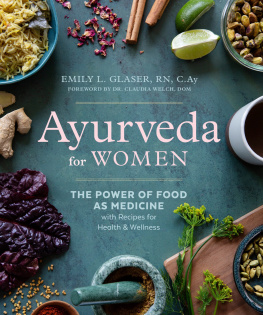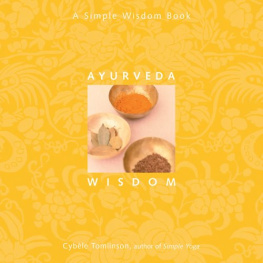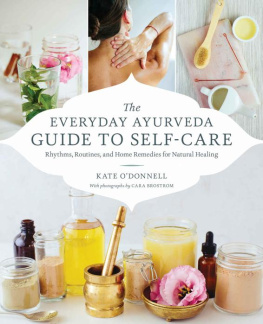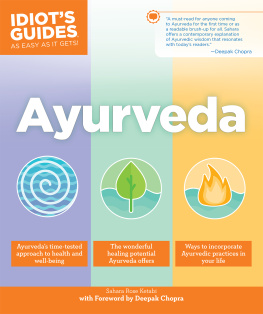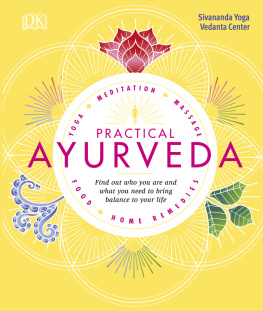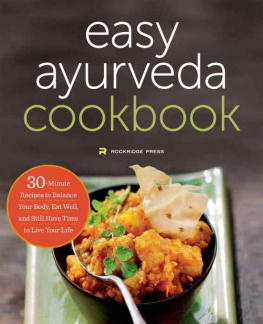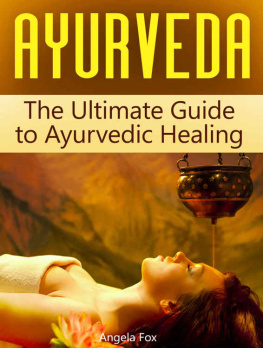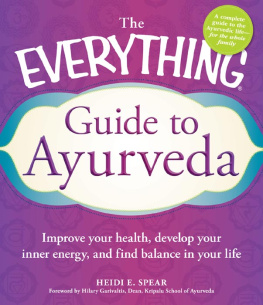STERLING ETHOS and the distinctive Sterling Ethos logo are registered trademarks of Sterling Publishing Co., Inc.
Text 2019 Deacon Carpenter
Cover 2019 Sterling Publishing Co., Inc.
All rights reserved. No part of this publication may be reproduced, stored in a retrieval system, or transmitted in any form or by any means (including electronic, mechanical, photocopying, recording, or otherwise) without prior written permission from the publisher.
This publication includes alternative therapies that have not been scientifically tested, is intended for informational purposes only, and is not intended to provide or replace conventional medical advice, treatment, or diagnosis or be a substitute to consulting with licensed medical or health-care providers. The publisher does not claim or guarantee any benefits, healing, cure, or any results in any respect and shall not be liable or responsible for any use or application of any content in this publication in any respect including without limitation any adverse effects, consequence, loss, or damage of any type resulting or arising from, directly or indirectly, any use or application of any content herein. Any trademarks are the property of their respective owners, are used for editorial purposes only, and the publisher makes no claim of ownership and shall acquire no right, title, or interest in such trademarks by virtue of this publication.
ISBN 978-1-4549-3642-8
For information about custom editions, special sales, and premium and corporate purchases, please contact Sterling Special Sales at 800-805-5489 or .
sterlingpublishing.com
Cover design by Elizabeth Mihaltse Lindy
Interior design by Gina Bonanno
Illustrations by Marina Demidova (kapha mandala)/Shutterstock.com satit_srihin/Shutterstock.com (border)
INTRODUCTION
How to Use This Book
More and more, we are learning that stress, poor diet, and an inactive lifestyle are major contributing factors to a rapidly increasing number of lifestyle diseases (obesity, diabetes, heart disease, high blood pressure, and depression) in our busy and constantly connected world. It as if weve forgotten some basic programming, like eating clean, exercising, and meditatingsimple tools for disease prevention that we can use in our daily lives. We are shocked when we visit our doctor and learn that we have been diagnosed with a lifestyle disease, even though our lifestyles largely reflect choices that create stress, exhaustion, and a lack of connection with our body.
Understanding how our mind and bodily functions react to stress, and understanding how disease and illness are linked to diet, lifestyle, and the reduction of stress, are the foundations of Ayurveda. This ancient and complex medical system encompasses specific guidelines that are designed to prevent disease and illness and encourage us to live more healthy and balanced lives in accordance with the ebb and flow of nature. Ayurveda provides us with clear guidelines on how to live our lives with the innate understanding of our unique mind and body types (called doshas) and how to keep them balanced through the journey of life. In this book, you will learn that the principles of Ayurveda are relatively easy to comprehend, start to understand your own unique mind and body type, and see how this 5,000-year-old system is still highly relevant in modern society today.
First and foremost, this book is not to be used to diagnose or replace any medical or pharmaceutical protocols you have already been prescribed by your doctor. It is to be used to start the conversation of change from disease management to disease prevention and, in some cases, treatment. A Little Bit of Ayurveda will help you understand the different body/mind types, (doshas), as well as understand how untreated stress keeps us in the cycle of disease. It will help you learn effective rituals and remedies specific to your unique body/mind type and how to stay healthy through the cycle of the seasons and throughout the cycle of your life.
For many health seekers who are looking to Ayurveda or any alternative or CAM (complementary and alternative medicine) therapy for a magic pill or magic treatment solution, I have some unfortunate news: there is no magic pillif there were such a pill or treatment, we would all be taking it. Ayurveda is truly personalized medicine that requires an individualized approach for each of us. Even if your diagnosis is similar to many other peoples, your physiology and pathology (path to disease) are unique to you. By that, I mean that if you have a room of twenty people who have been diagnosed with breast cancer, there will be twenty unique physiologies and pathologies in the room.
The treatment for this disease may be similar, but each case is unique to the individual and will be different based on the patients lifestyle, diet, and willingness to undergo the treatment.
We are all on our own health journey, and what may work wonders for one person may not be the best fit for another.
Ayurveda helps guide us to an understanding of the uniqueness of our own body and how to keep it healthy and disease free. Ayurveda has a strong focus on measurable and long-term results because of its emphasis on getting to the root of the disease or imbalance, rather than simply managing the symptoms of the disease.
We really only truly learn when we filter our knowledge through our own experiences. As this book starts to unfold, I invite you to look at the knowledge of Ayurveda as more of a framework than a collection of hard and fast rules for how to balance your mind and body. Approaching Ayurveda as a framework of knowledge allows more room for you to tailor it to your own body and lifestyle.
My journey to understanding started in 1988, shortly after I moved to the United States from the United Kingdom. I was pushing 275 lbs., with terrible cases of eczema and asthma. In the first year of living in the US, I gained an additional 60 lbs. I was tipping the scales at 330 lbs., and it was my friend Virginia (who I affectionately call my stepmother) who took me to my first yoga retreat and introduced me to Ayurveda. Just by changing my diet and lifestyle, incorporating yoga, and starting meditation (I practice Transcendental Meditation), I was able to lose half my body weight (I was 160 lbs. at my lowest), and my symptoms of eczema and asthma cleared up. I was hooked, and I knew at some point in my life, I would help people like me get well through this system.
Naturally, my journey is unique, as it will be for you. Its my intention that A Little Bit of Ayurveda will help you better understand what may seem to be a rather complex system that, until recently, was often relegated to the New Age movement. In reality, Ayurveda is fairly simple once you understand its principles along with your unique constitution and how to apply the knowledge of prevention. Consider this book as somewhat of a users manual for your body.


